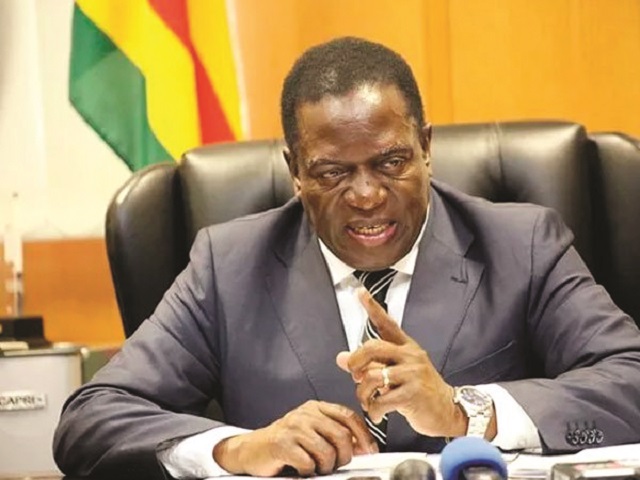
The Sunday News

Micheal Mhlanga
The last month in Zimbabwe’s recent history has been marked by some dramatic and significant developments on the country’s political terrain. These developments have been as varied as they have been contradictory. They have also constituted a major source of challenge to political theory as different schools of thought grapple with them in terms of their weight and meaning.
As can be imagined, there is no consensus on the most appropriate approach for interpreting the changes that are taking place in the structure, content and dynamics of Zimbabwean politics; indeed, efforts at conceptualising the changes have produced a veritable Tower of Babel, with commentators not only speaking in different tongues but frequently past one another.
Zimbabwe’s events fit well in Thandika Mkandawire’s 1996 and Mamdani’s 1999 reflection of the Changing Patterns in African Politics. The two intellectual prophets pre-told about shifts in African politics referring exactly to what occurred in Zimbabwe recently.
The optimist and the pessimist
The contradictoriness of the changes, at once inspiring hope and generating despair to some, has polarised the scholarly and policy communities into Afro-optimist and Afro-pessimist camps as Adebayo Olukoshi called them in 2016. But for all the insights which they may offer into the problems and prospects of progressive change in Zimbabwe, both the Afro-pessimist and Afro-optimist frames are far too simplistic and subjective to serve as an enduring basis for capturing the dialectics of socio-political change and transformation.
Understandably, much of the attention which has been focused on political change in Zimbabwe has been concentrated on the formal institutions and procedures of politics because these are both more visible and measurable. However, as is the case with politics elsewhere in the world, important as institutions and procedures are, they do not, in and of themselves, tell the whole story.
For this reason, it is important that attention is paid also to the processes that underpin and mould/remould formal institutions and procedures, including especially the actors and actresses whose actions and inactions give life to the political system. And this can be done without a resort to stereotyping Zimbabwean politics almost as a domain of abracadabra where the more one sees, the more one gets mystified.
To some, perhaps those who assume that the current changes in the political space are a machination of a month’s unfolding, it would be prudent to share with you a year. What we are experiencing today is a result of events that occurred from as way back as 2004.
The political tectonic plates began to shift then and fortunately to some and so-long-a-letter to others. It is at that point Zanu-PF began to refurbish itself, employing a series of expulsions of one of their sons and daughters. The epitomic results of the uncalled for meetings reduced the party to a college of disregarding its founding principles, exclusion of insight from important thinkers and an expedited transformation of the party in alienating itself from the paradigm of Zvimurenga.
The results of forced transformation bled the party a decade later in 2014 which saw ripping expulsions and voluntary exodus of the most notable national figures Zanu-PF has ever had, culminating to a more political focus than governmental duty.
It took more than a decade to usher this new change with an aggressive need to protect the image, interests and the brand of Zimbabwe. The changes which have taken place on the Zimbabwean political landscape over the last month have been multidimensional. They have occurred as much at the level of formal politics as in the arena of the informal processes that underpin the political system. They have also been generated by factors internal to the political system and those external to it, necessitating a close attention to the contexts within which the changes are occurring. Furthermore, while domestic, local and national-level considerations are critical to the definition of the process of change, external factors and international actors also continue to play an important, even, at some conjunctures, determinant role in shaping outcomes.
The various dimensions of change that have impacted on the pattern of politics in our country have been the subject of competing interpretations to which we will return fully some other day. The key point which is worth keeping in mind at this point is the fact that the dominant methodology that consists of seeking to establish a balance sheet of progress and regression has hardly been helpful in enabling students of contemporary Zimbabwean politics to capture the nuances of change.
Often taken in isolation, rather than in their inter-connectedness, and frequently treated episodically rather than as part of a broader historical flow, the various elements of change are also routinely assessed without an adequate attention to the context within which they are unfolding. A first step towards redressing the prevalent analytic gaps in the study of Zimbabwe necessitates a discussion of the context within political change is being fashioned and unfolded.
Towards creating a new barometer of measuring ourselves
The continuing analysis of Zimbabwean politics, economy and society on the basis of binary oppositions that separate and treat as distinct, the formal and the informal, the private and the public, the state and the market, the rural and the urban, and the state and (civil) society.
Yet, such rigid compartmentalisations are hardly useful for understanding the logic of politics in a setting where most actors/actresses straddle the distinct boxes on the basis of which an effort is made to understand them.
Where attempts have been made to overcome this weakness, they have often produced outcomes which either attribute failure to the fact of straddling or caricature straddling as one of the features of the exotic nature of our politics.
Zimbabwean politics, as indeed politics elsewhere in the world, is in a permanent state of evolution. The current phase of the process of change in the politics of the country is one which is by definition contradictory and far from being uni-linear or unidirectional.
follow@mhlanga_micheal



